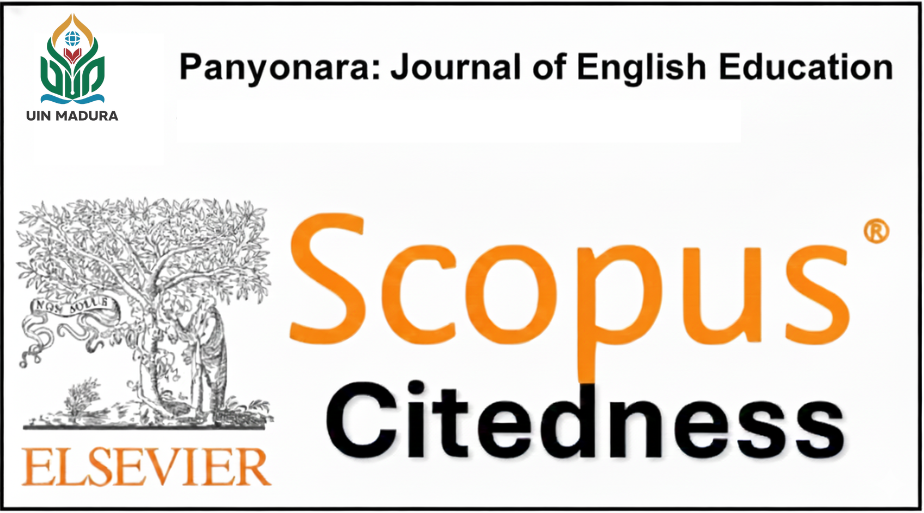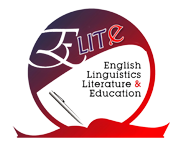The Advantages of Numbers of English Text Books in Student’s Reading Comprehension at The Third Semester of TBI IAIN Madura
 Abstract views: 466
,
Abstract views: 466
,
 PDF downloads: 415
PDF downloads: 415
Abstract
The number of English textbooks facilitates the students in their reading comprehension process because it will help them easier in comprehending the text and increasing the student’s knowledge. This research investigates about what are the advantages of numbers of English textbooks in student’s reading comprehension at the third semester of TBI IAIN Madura (Formerly STAIN Pamekasan) and how do the numbers of English textbooks help in student’s reading comprehension. 10 students are observed. The study was conducted using narrative qualitative research. The data are gotten from observation, interview, and documentation. The result of this research shows that there were four advantages of numbers of English textbooks in student’s reading comprehension, they are as a source of knowledge, as the references, as a training to have better thinking, and as pleasure. And how the numbers of English textbooks help in student’s reading comprehension, most of the students realize that by reading several books, it helps them easier in comprehending the text, reaching higher levels of thought, add up new vocabularies, understanding reading text easily.
Downloads
References
Ary, D., Jacobs, L. C., Razavieh, A., & Ary, D. (2010). Introduction to research in education (8th ed). Belmont, CA: Wadsworth.
Buku. (2014). In Wikipedia bahasa Indonesia, ensiklopedia bebas. Retrieved from https://id.wikipedia.org/w/index.php?title=Buku&oldid=15440498
Creswell, J. W. (2012). Education Research. Boston: Pearson Education.
Djuharie, O. S. (2008). Intensive Reading Bottom up Reading. Bandung: CV. Yrama Widya.
Leipzig, D. H. (2001, January). What Is Reading? | Adolescent Literacy Topics A-Z | AdLit.org. Retrieved 29 August 2014, from http://www.adlit.org/article/352/
Oxford Learner’s Pocket Dictionary (4th ed.). (2008). Oxford: Oxford University Press.
Reading comprehension. (2014). In Wikipedia. Retrieved from https://en.wikipedia.org/w/index.php?title=Reading_comprehension&oldid=910418844
Sadiman, A. (2011). Media Pendidikan. Jakarta: PT. Raja Grafindo Persada.
Setiawan, B. (2008). Agenda Pendidikan Nasional. Yogyakarta: Ar-Ruzz Media.
Singh, R. (n.d.). The Importance of Reading Books. Retrieved 14 September 2014, from http://www.singhrahul.com/2012/08/the-importance-of-reading-books.html
What is the role of books in Language Learning. (2014). Retrieved from www.thelanguagebear.com/what-is-the-role-of books-in language-learning
http://en.wikipedia.free ensyclopedia /reading_ comprehension. Accessed on 28 March 2014.
http://reading resources and help/developing reading-skill. Accessed on 11 May 2014.
Id.wikipedia.org/wiki/buku, accessed on 10 September 2014.
www.thelanguagebear.com/what-is the-role-of books- in languiage-learning, Accessed on 12 September 2014.
Interview Sources:
Hakim, L. (2014, November 23). The student at the third semester [Direct Interview].
Hidayati. (2014, November 25). The student at the third semester [Direct Interview].
Musarrofah. (2014, November 25). The student at the third semester [Direct Interview].
Qonitatillah, I. M. (2014, November 24). The student at the third semester [Direct Interview].
Suyanto. (2014, November 24). The student at the third semester [Direct Interview].
Tohiroh. (2014, November 26). The student at the third semester [Direct Interview].
The journal uses an Open Access policy under a Creative Commons Attribution-NonCommercial 4.0 International License. Authors who publish with this journal agree to the following terms:
- Authors retain copyright and grant the journal right of first publication with the work simultaneously licensed under a Creative Commons Attribution License that allows others to share the work with an acknowledgment of the work's authorship and initial publication in this journal.
- Authors are able to enter into separate, additional contractual arrangements for the non-exclusive distribution of the journal's published version of the work (e.g., post it to an institutional repository or publish it in a book), with an acknowledgment of its initial publication in this journal.
- Authors are permitted and encouraged to post their work online (e.g., in institutional repositories or on their website) prior to and during the submission process, as it can lead to productive exchanges, as well as earlier and greater citation of published work.

















